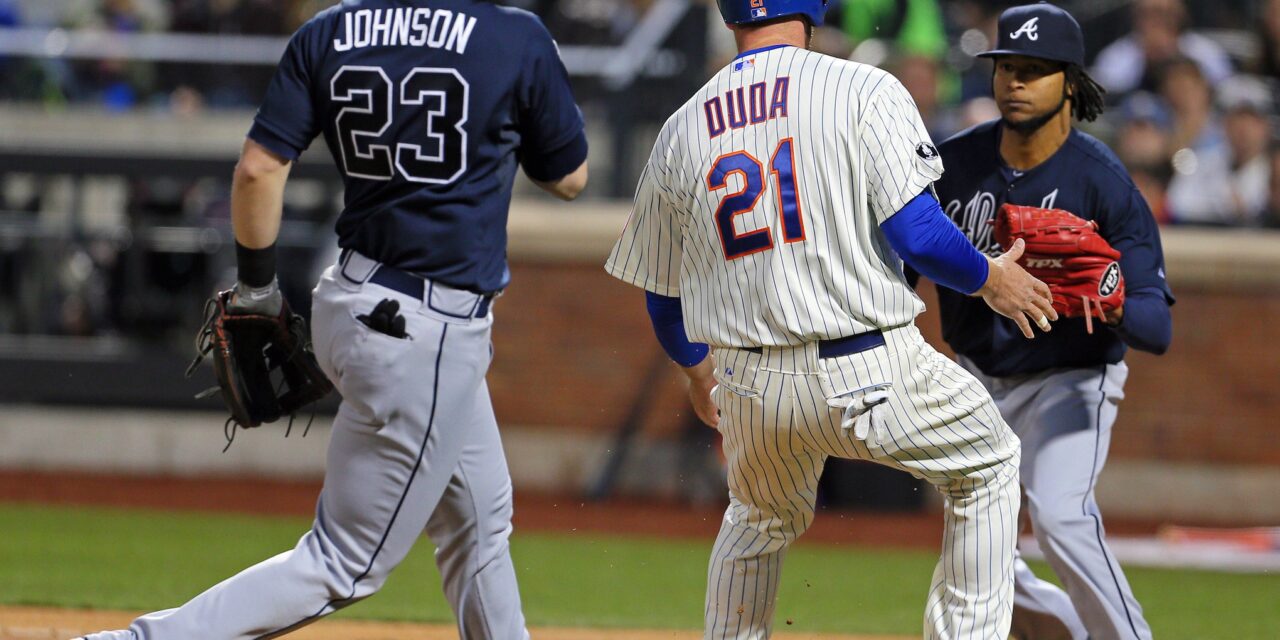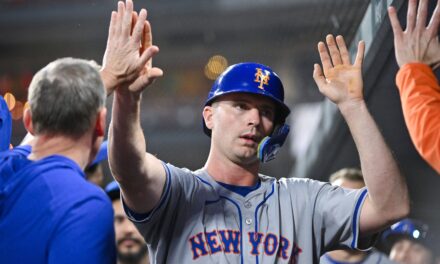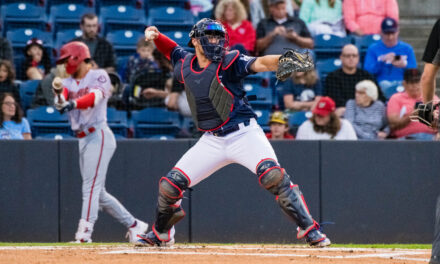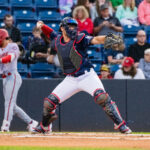Minor tweaks of the nutritional program are not the answer. Changing the eating schedule so the players have more time to digest their food will bring no measurable change in outcomes. The Mets failure to win games at Citi Field is a hot topic as we move towards the end of first month of a new season, and the Mets continue to under perform at their home ball park and over perform playing games on the road.
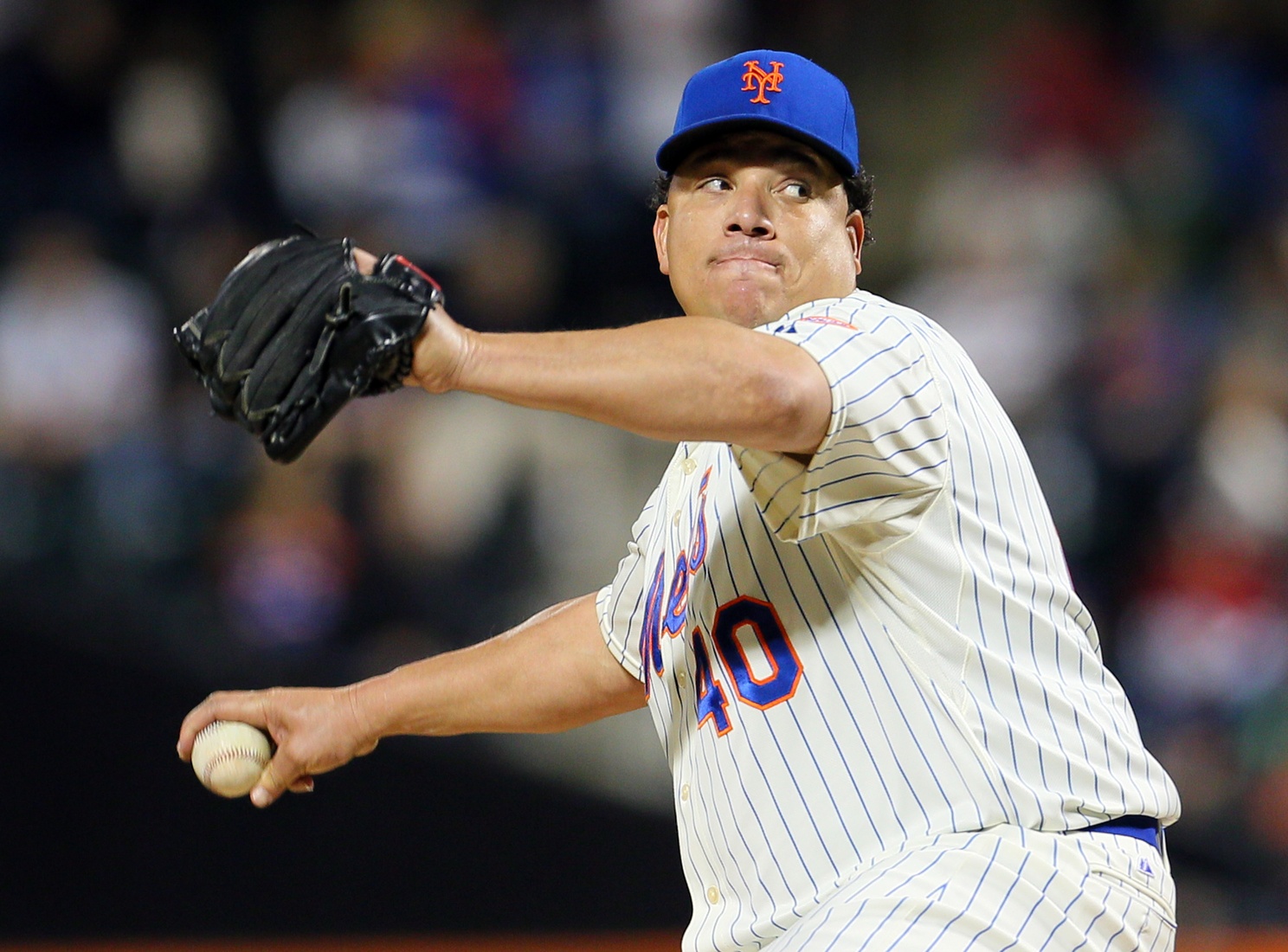 I visited Citi Field for the first time this season last night. The Mets and the Braves put on a baseball show that was definitely entertaining, and although ultimately disappointing, almost bordered on being fun. Yet, it was not the baseball game itself, but the mood of the Met faithful I found most fascinating. It’s mid April and hope does not spring eternal at Citi Field.
I visited Citi Field for the first time this season last night. The Mets and the Braves put on a baseball show that was definitely entertaining, and although ultimately disappointing, almost bordered on being fun. Yet, it was not the baseball game itself, but the mood of the Met faithful I found most fascinating. It’s mid April and hope does not spring eternal at Citi Field.
Reduced ticket prices taking some fans back to price levels found at Shea Stadium one-half century ago assured a good sized crowd. The Mets had just returned from a very successful 9 game road trip. Yet, a burned and maligned Met fan base was fidgety and impatient, in no mood for watching ‘the same old, same old’ on the greens of Citi Field.
Fan cynicism was everywhere at Citi Field last night. It wrapped itself around you shortly after the first pitch and squeezed tighter and tighter as the game unfolded. Met fans are clearly not as excited about their team as management might want us to believe. The Met faithful appeared suspicious and wary, no longer willing to be sold a bag of goods or willing to allow for more time. By the comments and reactions of the Met crowd it’s obvious few Met fans have adopted a ‘wait-and-see’ attitude to the season with few jumping on the 90-win bandwagon.
The loud and skeptical mood of Met fans last night, the prevalent ‘buyers beware’ attitude that almost emanated everywhere around the stadium, got me wondering if that disposition might have something to do with the Mets poor play at Citi Field.
Ego is definitely a huge part of a professional athletes profile. Athletes who attain professional status represent a tiny fraction of those who at one time aspired to reach such lofty plateaus. Even so, no matter how hardened and tough the outer veneer of a professional athlete, internally, like everyone else, athletes care about their image.
In the world of psychology, self-handicapping refers to human behaviors intended to keep performance failure from damaging one’s image or self-esteem. Studies have shown that athletes, especially male athlete,s are often prone to self-handicapping to protect the sense of competence they have worked so hard over time to maintain.
When people self-handicap, they employ strategies or create obstacles and excuses to explain performance failures diverting attention to external factors outside their area of control rather than seeking answers by looking internally at things they can control. The effects of self-handicapping can be large and small and are found in almost all environments where people are expected to perform. In baseball terms, excuses like the size of the park, wind currents, or, perhaps, the eating and digestive habits of a team can be pointed to as causes of poor performance, rather than the skill levels of the players assembled on the field or the basic execution of those players when playing baseball.
The athletic playing field is an ideal setting to cultivate self-handicapping behaviors. Embarrassment, the fear of failure, demonstrating incompetence in public or facing unrealistic expectations are all associated with the self-handicapping.
Those factors are a fact of life playing professional sports in New York City. TRADE ‘EM ALL was the New York Daily headline greeting the Mets after the locals were one-hit in the opener of the current Citi Field series against Atlanta. That after completing a three game sweep in Arizona. Talk about pressure.
Twenty-four hour sports talk radio slices and dices individual player and team performance on a daily basis. It’s a fact, that staying positive is associated with improved work performance, and it takes work to stay positive when things aren’t going well for a professional sports team in New York.
That fact is magnified for the Mets and their fans playing in a city with a baseball market shared by the Yankees. Comparing yourself with others is proven to have a negative affect on performance helping create a huge reservoir of pressure when expectations rise and losing becomes even more of a disappointment.
And, it’s possible the whole affair can become a vicious cycle, the Met baseball team performing well below expectations, the local fan base becoming more and more frustrated and cynical amping up the pressure to perform, thus increasing the public ridicule and negativity associated with team performance. Anxiety and fear of failure builds increasing the self-handicapping effects thus almost setting up conditions conducive to future failures.
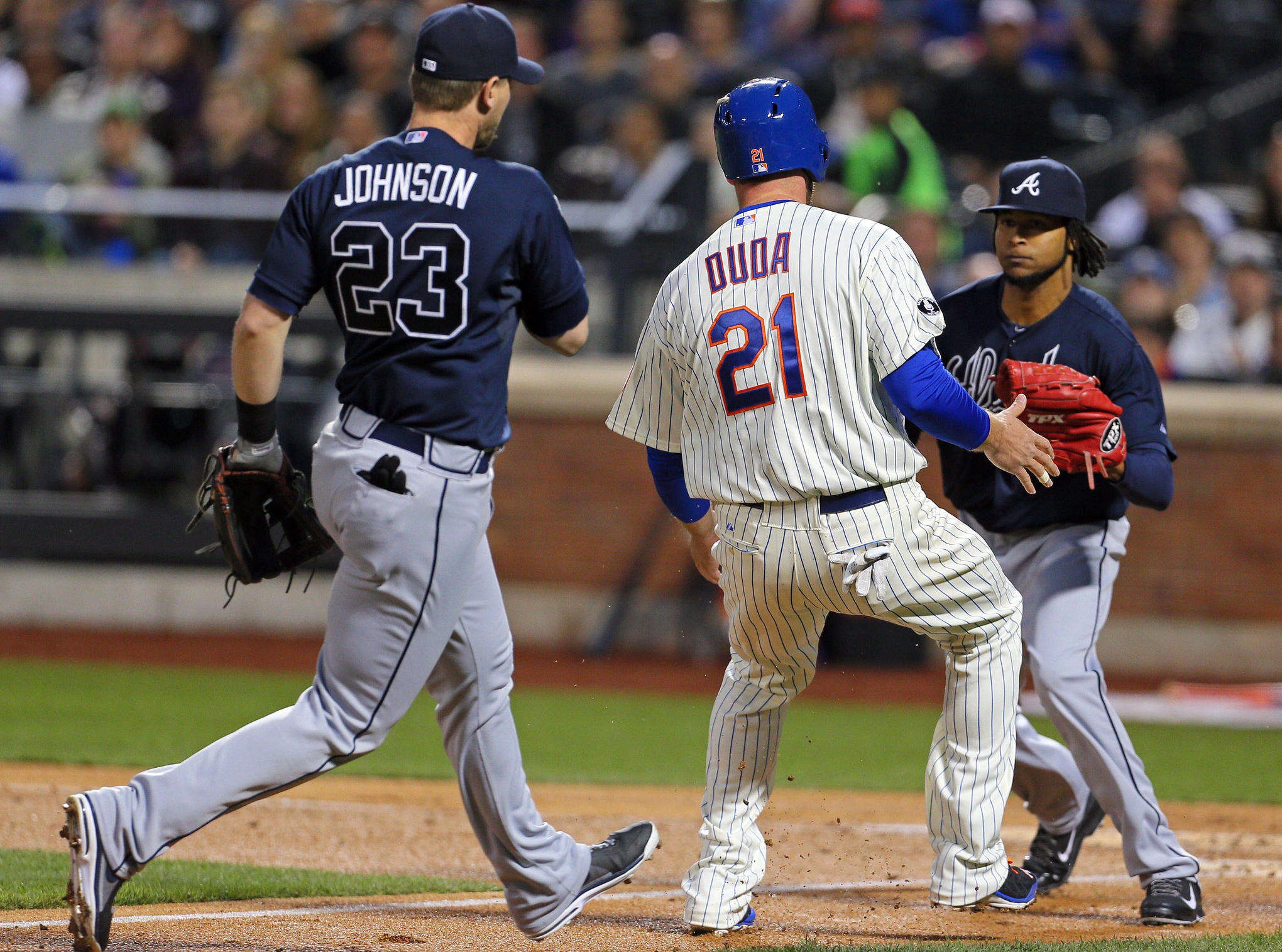 The affect on an athlete are subtle but powerful just the same. They may manifest in the presence of aches or pains that might not appear on a highly successful team, of waning motivation or effort, of trying to hard which sometimes results in unanticipated mental error or fatigue. Could that be a part of a runner on third with no outs who runs on an infield groundout as Lucas Duda did in last nights game?
The affect on an athlete are subtle but powerful just the same. They may manifest in the presence of aches or pains that might not appear on a highly successful team, of waning motivation or effort, of trying to hard which sometimes results in unanticipated mental error or fatigue. Could that be a part of a runner on third with no outs who runs on an infield groundout as Lucas Duda did in last nights game?
Could that be the cause to Ruben Tejada, who represented the tying run at the time, failing to advance from first base to scoring position at second, when the ball skipped past the catcher allowing Chris Young to advance from second base to third? I’m not sure, but Met fans who regularly follow the team know the team they watch on the road plays crisper baseball, is fundamentally more sound, and seems more energized and motivated than the team they watch at Citi Field.
Why? Could it be that once removed from playing baseball under the magnifying media lens of NYC, the Met players relax and thrive and perform more to their baseball abilities?
It was Buddha who said, “We are what we think. All that we are arises from our thoughts.” It would have been difficult for the Met players to have missed the negative vibes that bubbled in Citi Field last night. It was almost as if everyone in the ballpark was on edge, anticipating the exact moment the hammer would fall on their Mets. Amd, that includes the author of this post.
Some will accuse me of blaming Met fans for the team’s dismal performance at Citi Field. That’s not the case at all. After baseball expectations soared in Flushing from 2006 through 2008, the Mets went into free fall. For several years after, fans have given their trust in believing things were slowly and carefully turning around.
The aura of cynicism I felt last night at Citi Field just means the open season of blind faith is over, and Met fans are not willing to simply jump back into the trust-mode again. Met fans have the right to be skeptical. Trust in the Mets baseball operation must be earned.
How? Obviously, its imperative the Mets become competitive providing resources to field a playoff contending baseball operation. Our current levels of spending ranks near the bottom third of major league baseball, less player payroll this year than last, less last year then the year before. The size of a team’s payroll does not guarantee World Series success but it dramatically improves the chances the team you cheer for will compete for post season play. That’s part of building trust, especially in a market that asks fans to pay to watch that baseball at level’s that compete for tops in the game.
When Jose Valverde delivered the three-run home run pitch to Justin Upton last night it was stunning to see the mass exodus at Citi Field. Fans flooded the aisles hustling to escape the action on the field with almost more energy than the players demonstrated to play the game on the diamond. In no time flat, at least eighty percent of the fans in the stadium had vanished. There was simply no belief a Met rally was possible, even though the home team would battle back and almost tie the game.
As the fans were fleeing, my buddy leaned over and said to me, “You know, you could accept a home run shot like that if one of the kids had thrown the ball. It’s tough to take when it comes from Valverde.” That’s all part of the trust void. Over and over, we have read and relished and been assured that the arms were coming, that change was on the way. Yet, when roster decisions are made it seems “experienced,” “done it before” become organizational code words. Met fans know better. That’s not part of maintaining trust.
And, finally there is basic baseball execution. There was the snafu with the runner vacating third with no outs on an infield ground ball, the runner at first failing to advance on a passed ball when a lead runner on second moved to third, the ball tapped in front of the plate where the pitcher, ignoring umpire signals, thought the ball had hit the batter’s foot and was foul thus didn’t move to field the ball, then, when he did, rushed and threw the ball away allowing two runs, the bunt that went through Valverde’s legs in the fateful ninth, a wild pitch or passed ball that plated a run from third.
Baseball execution was horrid last night leveling trust we’re getting the best out of the players we do have available on our roster, no matter what their ability levels. And then the offense or lack thereof and the manager’s disclaimers that talk of a prevailing offensive philosophy is overblown. A catcher on our baseball team attended the game. Late in the game he leaned over and said to me, “I can play for the Mets. I’ve got pretty good defense but no offense, but that doesn’t seem to matter much.”
Later when the ball went between Valverde’s legs he quipped, “Major league baseball.” Major league execution it was not. Attention to detail and flawless mental execution of the game, too, would build trust.
1969, 1973, 1986, 2000, and even 2006 remind me Met fans are positive by nature, baseball fans yearning to throw their full support behind the team they love. The current fan perception of the Met team has come through several seasons of pain, several seasons of putting the heart ahead of the head of willingness to extend hope with little return. Met fans are tired, eager but not totally willing to get back in the game. Regaining trust is a difficult task, but it has been done before and can be done again. I have a hunch that when management provides reason for fans to trust, the wins will start piling up again at Citi Field.


